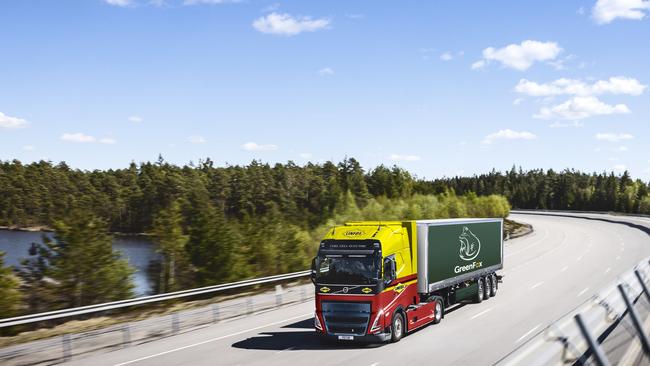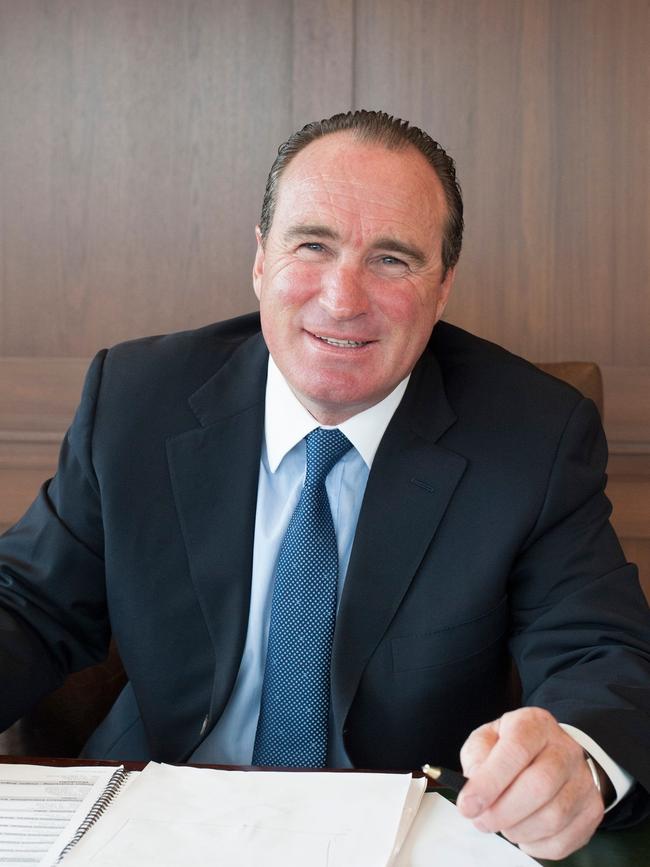Encouraging hydrogen freight vehicle uptake will take more than recharging stations
The biggest impact Linfox can make to a sustainable future is the conversion of our fleet to renewable fuel sources.

Eighty-three per cent of Linfox’s carbon footprint comes from diesel fuel consumption.
Without question, the biggest impact Linfox can make to a sustainable future is the conversion of our fleet to renewable fuel sources.
We have made a firm commitment to find alternative sources of energy to power our customers’ supply chains.This is demonstrated through our initial investment in six electric vehicles. With plans to add more to our fleet, electric vehicles will play a significant role in our future.
Despite the successful integration of these vehicles into our supply chains and our customers’ overwhelming enthusiasm to adopt them, they are just one part of the alternative fuel solution.
Technology and recharging constraints currently limit electric vehicles to metropolitan and inner-regional deliveries, and relatively small payloads.
Australians rely heavily on road transport for the delivery of essential goods due to our immense land size and low population density in many parts of the country.

The introduction of hydrogen fuelled long-haul heavy freight vehicles is vital if Australia is to meet its target to reduce greenhouse gas emissions by 43 per cent below 2005 levels by 2030, and its commitment to net zero emissions by 2050.
I congratulate our partner, Toyota, for its leadership in developing one of Australia’s first hydrogen-powered passenger vehicles and its trials of hydrogen fuel cell-powered forklifts through its Toyota Material Handling business.
Australia is yet to see significant progress in hydrogen technology in the heavy vehicle market, however.
Leading a private company the size of Linfox presents extraordinary opportunities as well as frustrations.
With more than 5000 vehicles on the road, the conversion of our fleet to renewable sources will have a marked effect.
There’s also the trickle-down impact of our vehicles in the market. Linfox invests in Euro 6 trucks, which are turned over roughly every three years.
These vehicles, which are meticulously maintained, are sold to small to medium sized operators on the second-hand vehicle market. And so the cycle continues.
Linfox enjoys strong relationships with reputable truck manufacturers. Our buying power can impact a product being commercially viable in the Australian market.
We have the will and the means to make a difference. It’s a position that we are proud of and one that we don’t take for granted. Yet our own progress is equally at the mercy of government decision making and progress, or lack thereof.
I applaud the initiative by the Victorian and NSW governments to deliver Australia’s first open access renewable hydrogen refuelling network by 2025. This investment on Australia’s busiest freight corridor is an important first step in decarbonising the heavy transport industry.
Yet more needs to be done if hydrogen is to become a commercially viable option, particularly for small to medium sized operators. Importantly, we must see a commitment by the Victorian and NSW governments to fund the network beyond the initial pledge of $20m. This must be paired with short term financial incentives for individuals and business to switch to hydrogen powered vehicles, like those offered to electric car owners by most Australian state governments.
Only with these investments can vehicle manufacturers and consumers be confident in the commercial availability and widespread uptake of hydrogen by consumers.
Federal and state governments have a significant opportunity to be on the front foot of embracing and regulating new hydrogen policies and making impactful, lasting change.
-
Peter Fox is executive chairman, Linfox Pty Ltd.


